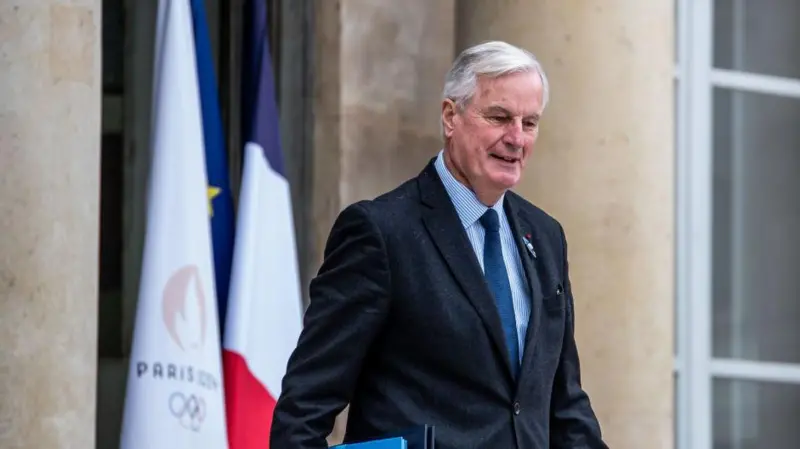
French Prime Minister Michel Barnier tendered his resignation Thursday morning after losing a no-confidence vote in parliament, plunging France into heightened political and financial uncertainty.
Barnier, who served as prime minister for only a few months, met President Emmanuel Macron at the Élysée Palace to formalize his resignation. He is now poised to be the shortest-serving premier in modern French history.
A parliamentary majority, spearheaded by the hard-left France Unbowed (LFI) party and supported by the far-right National Rally, led to his ouster during a vote Wednesday evening. The trigger was Barnier’s 2025 budget proposal, which included austerity measures he deemed necessary to stabilize public finances but which lawmakers overwhelmingly rejected.
The no-confidence vote automatically voids the government’s budget plan for 2025, forcing France to operate on a rolled-over budget unless a new government approves a fresh proposal by the end of the year—an unlikely scenario.
“France probably won’t have a 2025 budget,” noted ING Economics in a statement. “The country is entering a new era of political instability.”
Ratings agency Moody’s echoed concerns, warning that Barnier’s fall “deepens the country’s political stalemate” and hinders efforts to consolidate public finances.
President Macron, now tasked with appointing a new prime minister, faces calls from opposition leaders to resign. “We are now calling on Macron to go,” said Mathilde Panot, head of LFI’s parliamentary faction, demanding early presidential elections to address the crisis.
However, far-right leader Marine Le Pen struck a more conciliatory tone. “Once a new premier is appointed, we will help create a budget acceptable for everyone,” she said in a televised interview.
Speculation is rife about Barnier’s replacement, with Defense Minister Sébastien Lecornu, centrist ally François Bayrou, and former Socialist Prime Minister Bernard Cazeneuve among potential candidates. Yet, with the current hung parliament, any successor faces the same political gridlock.
France’s stock market dipped in early trading Thursday before recovering, while bond yields on French government debt rose. Protests and strikes in sectors like transport and education persisted despite the withdrawal of Barnier’s austerity budget.
Amid the turmoil, Macron plans to address the nation Thursday evening, seeking to calm a restive populace.
The crisis comes days before the reopening of Notre-Dame Cathedral, a symbolic event that will see world leaders, including U.S. President Donald Trump, gather in Paris.
Barnier’s resignation marks the first successful no-confidence vote since 1962, underscoring the deep divisions in French politics and the challenges facing Macron’s presidency.







